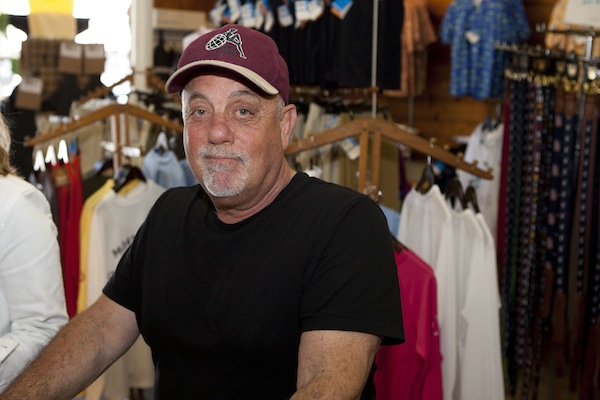Column: Politics and the plight of the St. Louis

“I am the child of refugees. Had my father and his parents not been allowed here, I would not exist.” — Billy Joel
The passenger ship St. Louis left the port of Hamburg, Germany, May 13, 1939, with 937 Jewish passengers aboard, including hundreds of children. Its destination was Havana, Cuba, which had given the passengers transit visas and landing certificates to disembark once they arrived.
The voyage was one of hope for the passengers — a last, desperate hope. Violent anti-Jewish hatred had erupted in Germany since the Nazis came to power in January 1933. Seven months before the St. Louis sailed, on the evenings of Nov. 9-10, government-supported mobs had looted and destroyed thousands of Jewish-owned businesses in Germany and set scores of synagogues ablaze.
Between 1933 and the spring of 1939, tens of thousands of Jews fled Germany and Austria. Those aboard the St. Louis were also fleeing, with the hope of reaching Cuba first and, once there, obtaining visas to enter the United States, the land of their dreams.
Soon after leaving Hamburg, the St. Louis would become the voyage of the damned. Refugees in a desperate search for safety, the passengers on this voyage would not find safe harbor. They did not know that the Cuban president had invalidated their landing certificates at almost the same time the ship set sail.
On May 27, when the ship entered Havana Harbor, only 28 of the 937 passengers were allowed to disembark. On June 2, the ship was ordered to leave. “Sailing so close to Florida that they could see the lights of Miami, some passengers on the St. Louis cabled President Franklin D. Roosevelt asking for refuge. Roosevelt never responded,” according to the United States Holocaust Memorial Museum.
On June 6, the passengers’ nightmares became real when the ship, barred from both the United States and Canada, turned eastward to sail back to Europe. Once there, Great Britain, the Netherlands, Belgium and France admitted the passengers. Some 532 of the passengers were in Europe when the Germans overran the Low Countries and France in the spring of 1940. Of these, 254 were rounded up by the Germans, shipped to camps and murdered.
Among the murdered were a once-prosperous Nuremberg businessman named Leon Joel and his wife, Johanna. Before they were seized in France, they had hidden their 10-year-old son, Gunther, in a French boarding school. He would find out he was an orphan after the war.
Leon Joel was the brother of singer Billy Joel’s grandfather, Karl Joel, who, with his wife, Meta, and their son, Howard — Billy’s father — had made it to Cuba on another passenger ship transporting German Jewish refugees — the SS Arandora Star — before the St. Louis. They had been allowed to disembark. The door slammed shut after them. They knew their family members were aboard the St. Louis but could do nothing to help them.
“My father and his parents waited in Havana for my grandfather’s brother and his family,” Billy Joel said. “The ship came but was not allowed to land. It then went up the East Coast but was not allowed to land anywhere.
“I am the child of refugees. Had my father and his parents not been allowed here, I would not exist.”
This week, on the road near Mexico City, a “caravan” of refugees — men, women, children, babies — is walking north toward the United States. One foot in front of the other, mile after mile after mile. This thousands-strong group began in Honduras, a country crippled by political turmoil and murderous gang violence. Women cradling babies have now been walking for weeks. And they have weeks to go before they are even close to our border.
Before last Tuesday’s midterm elections, this caravan of the desperate was a daily rallying cry for President Trump, who labeled them everything from terrorists in hiding to carriers of diseases to people invading America. He ordered the Army — at a cost of hundreds of millions of dollars — to the Texas border to prevent them from entering en masse. There they wait. The president wanted his supporters to know the refugees are our enemy.
The parallels between the plight of the St. Louis’ passengers, who were rejected by America and returned to Europe— and their deaths — and the thousands marching north fleeing a country with one of the world’s highest murder rates, certainly seems clear in the dark light of today’s politics.
“It feels like déjà vu all over again,” Billy Joel said. “The similarities are obvious … People’s lives are at stake. This is the hope of the world, this country. We are proud of that. We are the shining city on the hill. We welcome people. We want to share our freedom and opportunity with them. We are now shutting the door on the world.”
Jill Santiago, who teaches the Holocaust at Suffolk County Community College, said the passengers of the St. Louis were joyous when they left Hamburg. They really thought they would get off that ship — that they were away from the Nazis. After they were denied entry to Cuba, they slipped into desperation. One committed suicide.
“The fear of returning to Germany was more than they could handle,” she said. “They knew where things were headed in Germany. It was no secret what would happen to them.”
The ship’s captain negotiated with anyone who would take his passengers. No one would. The climate in the U.S. at that time was very much against the German refugees, Ms. Santiago said.
“In terms of today, there are a lot of parallels,” she said.
Billy Joel’s father and grandparents eventually won the right to leave Havana and moved to New York City. In 1942, not knowing the fate of his brother’s family in Europe, Karl Joel wrote to the American Friends Service Committee asking for help in getting his nephew, Gunther, then 12, to the United States.
The Friends wrote back and said there was very little they could do.
Last week, Canadian Prime Minister Justin Trudeau apologized for the cold shoulder his country gave 937 people aboard the St. Louis. Addressing the Parliament, Mr. Trudeau spoke of how the government in 1939 was “unmoved by the plight of these refugees … We are sorry for the callousness of Canada’s response, and we are sorry for not apologizing sooner.”
On Oct. 27, a Nazi-lover named Robert Bowers murdered 11 Jewish worshippers in Pittsburgh’s Tree of Life synagogue in what was widely described as the worst anti-Semitic incident in U.S. history.
It wasn’t. Turning away the 937 was.
Photo caption: Billy Joel poses for a photo inside Preston’s in Greenport. (Credit: Katharine Schroeder, file photo)
 The author is the executive editor of Times Review Media Group. He can be reached at [email protected].
The author is the executive editor of Times Review Media Group. He can be reached at [email protected].









